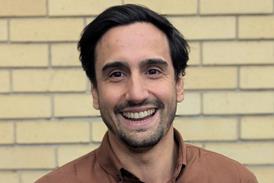All HSJ Partners articles
View all stories of the same content type.
-
 HSJ Partners
HSJ PartnersClimbing blind up the productivity mountain: how transparency, equity and trust could deliver care for 10-15 million more patients
Productivity in the NHS remains markedly below pre-pandemic levels, while trusts are faced with growing demand and increased financial pressure. Public satisfaction has hit historic lows, yet most trusts still lack a clear view of where consultant time is going – and where it’s being lost. In this article, BCG ...
-
 HSJ Partners
HSJ PartnersUnleashing the potential of the NHS’s Federated Data Platform
As rollout of the NHS Federated Data Platform (FDP) nears completion, it offers a transformative opportunity to improve performance and patient outcomes. Fulfilling this potential will need a coordinated focus on value by the NHS, and spirited buy-in from across the healthcare ecosystem. In this article, we outline six ideas ...
-
 HSJ Partners
HSJ PartnersHarnessing innovation to transform Afib treatment
Boston Scientific’s Racho Strauven explains how pulsed field ablation (PFA) is a cost-saving alternative for treating atrial fibrillation (AF). He highlights a study published in BMJ Open that suggests PFA could save the NHS an average of £343 per patient, paving the way for improved patient outcomes and healthcare efficiency.
-
 HSJ Partners
HSJ PartnersCollaboration is key to leverage digital enabling solutions across our financially challenged NHS
The NHS must focus on collaboration to reap the benefits of digital solutions, writes Dr Pooven Maduramuthu, healthcare industry lead, UKI at DXC Technology.
-
 HSJ Partners
HSJ PartnersEnhancing cancer detection in rapid diagnostic centres: A radiologist’s perspective
The NHS long-term plan has set a crucial target: By 2028, 75 per cent of cancers should be diagnosed at stages one and two. Detecting cancer at the earliest possible stage is crucial to improving patient outcomes.
-
 HSJ Partners
HSJ PartnersGrow your NHS workforce with degree apprenticeships from the University of Greenwich
The healthcare sector is under increasing pressure to fill workforce gaps, upskill existing staff, and retain talent, and your organisation is probably no different.
-
 HSJ Partners
HSJ PartnersBalancing security and research access to North West London’s health data
iCARE and WSIC find new ways to enable both public trust and technological advances in healthcare
-
 HSJ Partners
HSJ PartnersAI is transforming radiology, but perhaps not in the way you think
Hexarad CEO and ex-NHS consultant radiologist Farzana Rahman explores how AI-driven technology is helping NHS trusts cut costs and reduce the administrative burden on overstretched clinicians.
-
 HSJ Partners
HSJ PartnersBeyond the status quo: Why public-private partnerships are the NHS’s next frontier
To meet rising demand, the NHS must embrace public–private collaboration that delivers proven tech solutions and enables faster, more efficient patient care, writes TeleTracking’s Chris Johnson
-
 HSJ Partners
HSJ PartnersHow North West London’s Health Secure Data Environment originated
iCARE and Whole Systems Integrated Care discuss pivotal projects that catapulted digital health
-
 HSJ Partners
HSJ PartnersHealthcare degree apprenticeships: A powerful prescription for social mobility
For too many young people from disadvantaged backgrounds, a stable and meaningful career in healthcare still feels out of reach. Yet, our NHS depends on exactly the qualities these individuals often bring in abundance: compassion, resilience, and a deep connection to the communities they serve.
-
 HSJ Partners
HSJ PartnersPartnering for progress: How BHRUT and 18 Week Support are transforming women’s health services
Across the NHS, the race is on to reduce elective backlogs and ensure timely patient care, particularly in high-demand specialties such as women’s health. Barking, Havering and Redbridge University Hospitals Trust (BHRUT) has taken an innovative approach to meet these pressures head-on.
-
 HSJ Partners
HSJ PartnersFour calls for action on children and young people’s health
The government’s health reforms are clear: shift care from hospitals to communities, focus on prevention, and embrace digital transformation. With NHS England planning guidance out earlier this year, now is the time to stop talking and start acting.
-
 HSJ Partners
HSJ PartnersThe first step in tackling racial inequity is listening to the people who experience it
Racial inequity affects the whole of society, and tackling it means listening to the voices of as many people as possible, write Habib Naqvi, chief executive of NHS Race and Health Observatory and Sam Rodger, assistant director policy and strategy at NHS Race and Health Observatory
-
 HSJ Partners
HSJ Partners‘I felt like I had so much to offer, but I didn’t have a voice’: One carer on valuing lived experience in mental health
After retiring from a long career in teaching, Veronica* found herself stepping into an unexpected role with a renewed sense of purpose – an expert by experience helping to shape the future of mental health services.
-
 HSJ Partners
HSJ PartnersThe applied learning opportunity: Making data and AI skills attainable for the NHS
Lord Darzi’s review into the future of the NHS calls for a “tilt towards technology” to unlock greater productivity.
-
 HSJ Partners
HSJ PartnersHome alone: Remote medication monitoring improves adherence and patient safety
People with mental health issues living at home need constant medication management
-
 HSJ Partners
HSJ PartnersHow Living Well Consortium used clinical AI to reduce patient dropouts by 14%
For many people, to simply seek mental health support is to have already overcome a huge emotional hurdle. When that bravery is met with phone holds, onerous forms, and months-long waitlists, countless prospective patients give up before even starting care.
-
 HSJ Partners
HSJ PartnersHow upskilling is powering a digital revolution at North London Foundation Trust
In a time of mounting pressures, one NHS trust is rewriting the script on mental health services.
-
 HSJ Partners
HSJ PartnersBeating burnout and backlogs in radiology – ensuring a sustainable teleradiology solution
Radiology services are facing unprecedented strain due to a widening gap: while patient care demands are skyrocketing, evidenced by more than 4.2 billion annual imaging procedures worldwide1, a severe global shortage leaves two-thirds of the world’s population with limited or no radiologist access2.




















